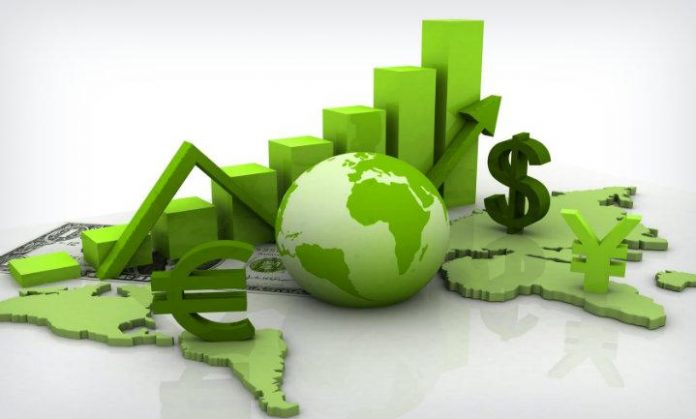While the fall has been less severe than feared in sub-Saharan Africa last year, the rebound will be less than expected in 2021, according to the World Bank. Which points to countries dependent on oil hazards and those where the risk of a worsening pandemic persists.
The world economy is expected to grow by 4% in 2021, after a recession of 4.3% in 2020, predicts the World Bank (WB) in its Global Economic Outlook. This prognosis assumes that the current deployment of Covid-19 vaccines will lead to massive vaccination campaigns throughout the year.
Any delay by the political authorities would be detrimental. The WB forecasts a recovery of 2.2% this year in the MENA region (against -2.1%) and of 2.7% in sub-Saharan Africa, after a contraction of 3.7%, according to the first estimates, in 2020.
For many months to come, economic activity may slow down and incomes drastically reduced. To support the recovery, the authorities must, in addition to health measures, promote an investment cycle that leads to sustainable growth and less dependent on public debt.
“As the global economy seems to be heading towards a timid recovery, policymakers face formidable challenges to ensure that this still fragile dynamic is confirmed and lays the foundation for solid growth,” confirms David Malpass, President of the World Bank. Who quotes haphazardly “public health, debt management, fiscal policies, central bank action or structural reforms”.
Looking to 2020, the average recession is less severe than expected, due to less contraction in advanced economies and a stronger recovery in China. Conversely, activity was severely disrupted, more than expected, in most emerging markets and developing economies.
After a contraction estimated at 3.6% in 2020, the US GDP is expected to rebound to 3.5% in 2021. The euro zone is expected to post growth of 3.6% in 2021, after a decline of 7.4% in 2020 For its part, the Chinese economy is expected to jump by 7.9% in 2021, after growing 2% in 2020.
Avoid a decade of disappointments!
“The pandemic has greatly exacerbated debt risks in emerging markets and developing economies, as sluggish growth risks further increasing the debt burden and eroding the ability of borrowing countries to secure debt. reimbursement,” said Ayhan Kose, acting vice president of the World Bank. Which warns: “Developing countries cannot afford another lost decade.”
The World Bank fears that, like the serious crises of the past, this pandemic will penalize global economic activity on a lasting basis, leading to underinvestment and underemployment. And to invite political leaders to comprehensive reforms to strengthen the levers essential to the advent of equitable and sustainable growth. This is to avoid a “decade of disappointing performance” by gradually abandoning income support policies in favor of measures to consolidate growth.
On the financial front, the WB points out that the central banks of several emerging markets and developing economies have appealed, mostly for the first time, to asset purchase programs. When targeted at obvious shortcomings, these programs appear to help stabilize financial markets in the early stages of a crisis. But if they continue and end up being a way of financing budget deficits, they risk eroding the operational independence of the central bank and weakening the currency.
In the MENA region (Middle East and North Africa), the year 2020 would therefore end with a contraction of 5%. The number of people who have lost their jobs has jumped and employment levels remain low. The contraction was smaller (2.2%) in 2020 in oil-importing countries thanks to a relatively slow spread of the epidemic in the first half of the year and lower oil prices.
Fiscal stimulus programs include increased spending on health and social protection, cuts and deferrals of tax payments, and the provision of loans and guarantees to businesses. The modest recovery (2.1%) expected in 2021 is explained by the persistent damage caused by the pandemic and the weakness of oil prices.
Assuming that the situation improves for two years, in 2022, economic output will still be 8% below the level indicated by pre-pandemic estimates. The effects will be more marked for oil importing countries than for exporting countries, warns the World Bank.
Morocco is expected to return to growth of 4% in 2021 thanks to the increase in agricultural production following the drought and the state’s easing of containment measures.
Concerns in South Africa!
In sub-Saharan Africa, production contracted by 3.7% in 2020. Per capita income therefore fell by 6.1% and the average standard of living fell back to the levels recorded more than a year ago. ten years, in a quarter of the countries of the region.
The most affected states are those where the pandemic has hit the hardest, those that are heavily dependent on the tourism sectors, and those that export commodities, especially petroleum.
South Africa (-7.8% in 2020) has been and continues to be severely affected by the pandemic. While Nigeria (-4.1% in 2020) suffered from the slowdown in its oil production and the pandemic continues to hamper activity in all sectors.
Oil exporters have been confronted with a sharp drop in prices (Angola, Congo, Equatorial Guinea, South Sudan), while countries in which tourism plays a major role suffered from the almost total absence of travelers ( Cape Verde, Ethiopia, Mauritius, Seychelles). The economy has shown a smaller decline in the countries exporting agricultural products (Benin, Ivory Coast, Malawi, Uganda).
The rebound will be moderate in 2021 (+ 2.7%); The recovery in private consumption and investment may be slower than expected, but exports are expected to pick up gradually, as the activities of major trading partners revive.
The pandemic is projected to cause a 0.2% drop in per capita income this year, and put the Sustainable Development Goals even less within reach of many countries in the region. Nigeria is expected to post growth of 1.1% in 2021, provided the oil market does not sink again. In South Africa, growth is expected to rebound to 3.3% in 2021, with the epidemic risk remaining high.
Threat to bank assets!
The recovery is expected to be slightly stronger – although below historical averages – in agricultural exporting countries, where activity will be driven by high world agricultural prices. Forecasts point to a slower recovery for industrial product exporters.
The outlook for sub-Saharan Africa is exposed to several downside risks. The growth of major trading partners may be lower than expected.
The large-scale distribution of a Covid-19 vaccine in the region is likely to face many obstacles, including inadequate transport infrastructure and lack of capacity in health systems.
Public debt has increased dramatically in sub-Saharan Africa, reaching around 70% of GDP on average over the past year, further increasing concerns about debt sustainability in some countries. Banks could see a sharp increase in nonperforming loans as companies struggle to service their debts due to falling revenues.
Reference: https://www.bangkokpost.com/business/2023275/modest-rebound-ahead-with-3-9-growth-in-2021

